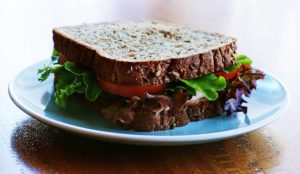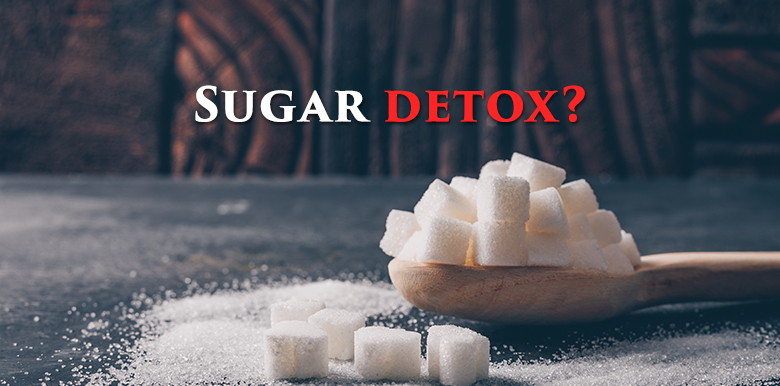The most important reason you should do a sugar detox is because sugar is an addictive substance. A sugar detox can potentially help you rewire your brain and break an addiction. You don’t have to be a sugar addict to take a break from sugar. If you think you’re eating too much refined sugars and want a break, doing a sugar detox can help. It’s best to make a plan for going sugar free. If you have a plan in place, you won’t feel as overwhelmed or confused on how to do this.

No sugar
Eight tips for doing Sugar Detox –
1. Quit Soda & Drink More Water

Drink more water
Replace regular soda and diet soda with sparkling water, unsweetened herbal tea, and plain water. Regular soda has anywhere from 20-48 grams of sugar per eight-ounce serving (and most cans are more than eight ounces). Diet soda isn’t innocent either, replacing sugar with artificial sweeteners that are linked to disease risk.
2. Choose Fresh Fruit

Choose fresh fruit
Replace desserts with fresh fruits. If your default habit is to reach for sweets after your meal, try weaning yourself off of desserts by replacing them with fresh fruit. Fruit has natural sugars, but it also contains nutrients and fiber to help slow the absorption into your bloodstream. Fruit can be a healthy alternative to dessert, especially antioxidant-rich, low-sugar fruit like berries.
3. Increase Healthy Fat

Increase healthy fat
Increase healthy fat sources at meals to reduce sugar cravings. Fat is satiating and keeps your blood sugar levels stable, so you won’t crash and crave sugar again. Healthy fats include avocado, unsweetened coconut products, grass-fed butter or ghee (unless you have a dairy allergy), and nuts and seeds.
4. Eat More Protein

Eat more protein
Make sure you’re eating enough protein at breakfast. It’s true that what you eat at breakfast influences you for the rest of the day. If you break your overnight fast with sugar and carbohydrates instead of protein or fat, you will set yourself up for a blood sugar roller coaster and cravings for the rest of the day.
5. Choose Healthy Snacks

Choose healthy snacks
Have an abundance of healthy snacks ready. If you stay prepared with healthy, low-sugar snacks, you won’t need to reach for the packaged goods and sugary treats. Having healthy snacks on hand also helps you if you notice low blood sugar creeping up.
6. Manage Stress

Manage stress
Stress can cause you to crave foods such as sugary snacks. Stress also depletes your body of important nutrients like magnesium and B-vitamins, which can drive sugar cravings.
7. Get Enough Sleep

Get enough sleep
Sleep deprivation can lead to cravings for calorically dense foods, which most often include those high in sugar. Moreover, a single night of poor or insufficient sleep can reduce insulin sensitivity the next day, making your blood sugar less stable and you more prone to crave sugar and carbohydrates to keep your blood sugar up.
8. Don’t Skip Meals

Don’t skip meals
If you’re trying to get off sugar, this is not the best time to introduce intermittent fasting. Your body will be going through a slight period of stress as you retrain it to stop craving sugar, and intermittent fasting can also be a stressor on the body.
As your body releases toxins when you go sugar-free, it can make you feel worse before you feel better. Remember that you could be breaking an addiction, and may experience withdrawal symptoms. Possible symptoms include headache and intense cravings. If symptoms become serious, consult your healthcare provider immediately.
